Description
ABSTRACT
Enforcement of Training Bond: A Critical Appraisal of Applicable Principles
Oyebanjo Yussuf Akinola*
The practice of sponsoring new employees in a company to undergo training fully funded by the employer, on the assurance that the employee will remain in the employer’s employment for an agreed period after the completion of the training, is a practice customary to the aviation sector. With the advent of globalization and technology, it has become desirable that employers in all facets of work train their newly recruited employees to grasp the extent of work required of them. The problem, however, almost often arises when employees, upon completion of the training, either due to better job opportunities or the zeal to seek greener pastures with their newly acquired certificate or skillset, decide to leave the employment of the employer/sponsor before the expiration of the agreed time covenanted by the employee to remain in the service of the employer. The disgruntled employer who often find the departure to be unjust and seeks to recoup the amount spent in training the employee usually gets to know that the legal consequence(s) of their kind gestures are far beyond their expectations and predictions, as Courts will in most cases require more than proof of mere execution of the training bond before the aggrieved employer can recoup the cost expended on the employee during the training though agreed upon by parties. This paper shall critically examine the guiding principles surrounding the enforcement of training bonds, considering the established rules as it relates to the aviation and other sectors within Nigeria and other jurisdictions. In attaining the above objective, this paper has been divided into various heads and sub-heads for ease of understanding. It shall take an analytical view of the state of the law in Nigeria and other jurisdictions. The Concluding part of this paper shall be aimed at proffering lasting solutions to the perceived lacunae in the enforcement of training bonds from statutes and decided authorities.
Keywords: Training, Service, bond, enforcement, reasonableness.
INTRODUCTION
According to the Black’s Law Dictionary,1 ‘a bond’ means “A written promise to pay money or do some act if certain circumstances occur or a certain time elapse; a promise that is defeasible upon a condition subsequent.”
The New International Webster’s Comprehensive Dictionary2 defined the word to ‘train’ being the root-word of ‘Training’ as “to bring to a requisite standard, as of conduct, or skill, by protracted and careful instruction; specifically, to mould the character of; educate; instruct.”
*LL. B (Hons.) LASU, BL.
- Black’s Law Dictionary (Thomson Reuters, 9 edn 2004) 200.
- The New International Webster’s Comprehensive Dictionary of The English Language (Trident Press
International Encyclopedic Edition 2004) 987.

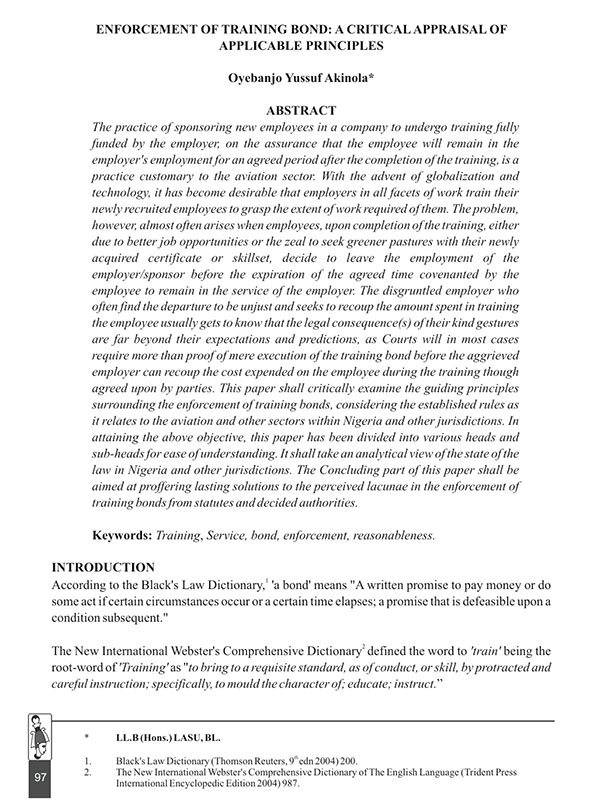
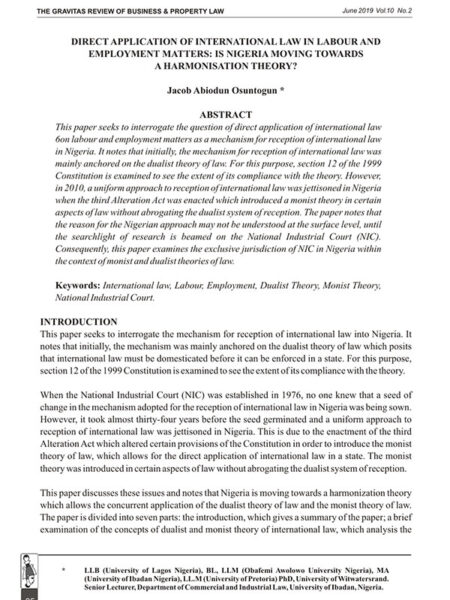
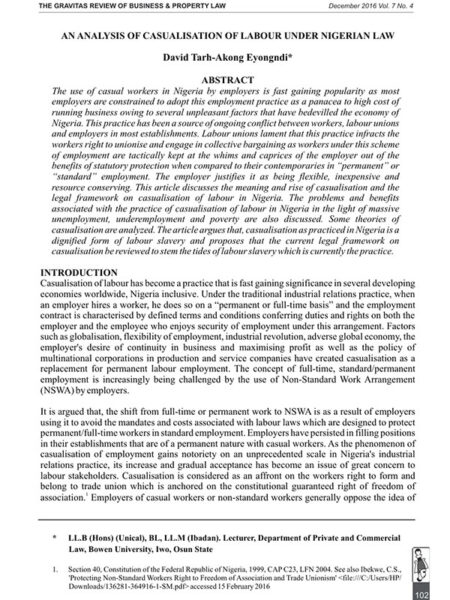
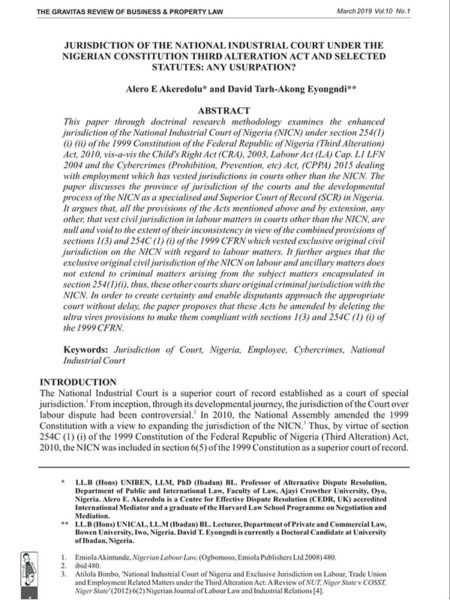
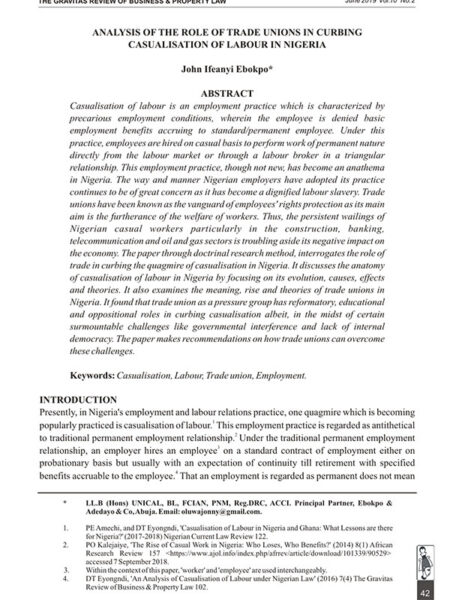


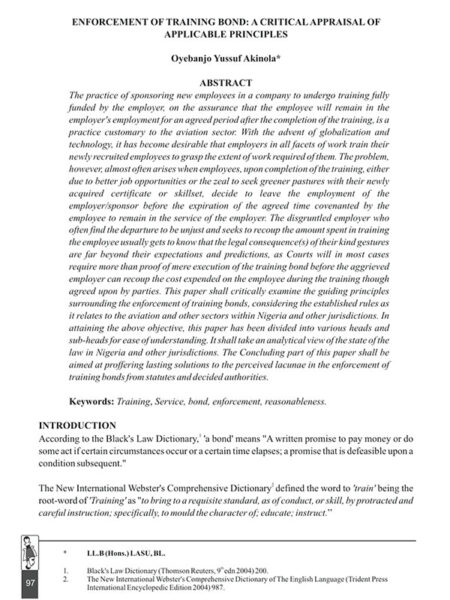
Reviews
There are no reviews yet.